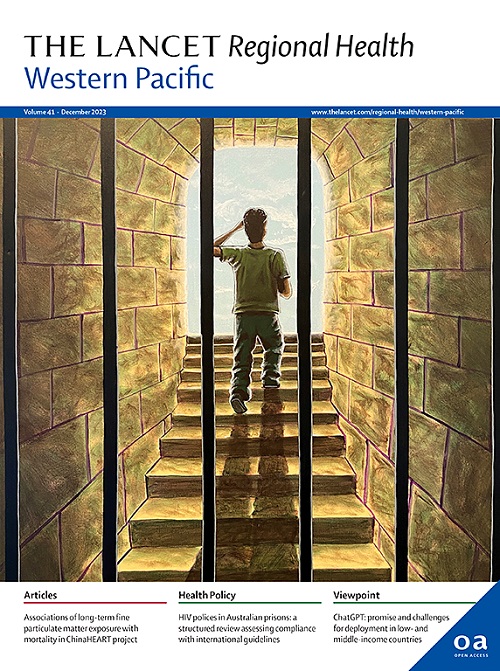Closing the gap in dementia research by community-based cohort studies in the Chinese population
IF 7.6
1区 医学
Q1 HEALTH CARE SCIENCES & SERVICES
引用次数: 0
Abstract
China accounts for 1/5 of the global population and China faces a particularly heavy dementia burden due to its rapidly ageing population. Unique historical events, genetic background, sociocultural factors, lifestyle, and the COVID-19 pandemic further influence cognitive outcomes in the Chinese population. We searched PubMed, Web of Science, and Embase for community-based cohort studies related to dementia in the Chinese population, and summarized the characteristics, methodologies, and major findings published over the last 25 years from 39 cohorts. We identified critical research gaps and propose future directions, including enhancing sample representativeness, investigating China-specific risk factors, expanding exposure measurements to the whole life-span, collecting objective data, conducting administer-friendly domain-specific cognitive assessments, adopting pathological diagnostic criteria, standardizing biobank construction, verifying multi-modal biomarkers, examining social and genetic-environmental aspects, and monitoring post-COVID cognitive health, to approach high quality of dementia studies that can provide solid evidence to policy making and promote global brain health research.
以社区为基础的中国人群队列研究缩小痴呆研究的差距。
中国人口占全球人口的1/5,人口迅速老龄化,痴呆症负担尤为沉重。独特的历史事件、遗传背景、社会文化因素、生活方式和COVID-19大流行进一步影响了中国人群的认知结果。我们检索了PubMed、Web of Science和Embase以社区为基础的与中国人群痴呆相关的队列研究,并总结了过去25年39个队列的特征、方法和主要发现。我们确定了关键的研究差距,并提出了未来的研究方向,包括提高样本代表性,调查中国特定的风险因素,将暴露测量扩展到整个生命周期,收集客观数据,开展管理友好的特定领域认知评估,采用病理诊断标准,标准化生物库建设,验证多模态生物标志物,研究社会和遗传环境因素。并监测covid - 19后的认知健康,以便开展高质量的痴呆症研究,为政策制定提供确凿证据,并促进全球脑健康研究。
本文章由计算机程序翻译,如有差异,请以英文原文为准。
求助全文
约1分钟内获得全文
求助全文
来源期刊

The Lancet Regional Health: Western Pacific
Medicine-Pediatrics, Perinatology and Child Health
CiteScore
8.80
自引率
2.80%
发文量
305
审稿时长
11 weeks
期刊介绍:
The Lancet Regional Health – Western Pacific, a gold open access journal, is an integral part of The Lancet's global initiative advocating for healthcare quality and access worldwide. It aims to advance clinical practice and health policy in the Western Pacific region, contributing to enhanced health outcomes. The journal publishes high-quality original research shedding light on clinical practice and health policy in the region. It also includes reviews, commentaries, and opinion pieces covering diverse regional health topics, such as infectious diseases, non-communicable diseases, child and adolescent health, maternal and reproductive health, aging health, mental health, the health workforce and systems, and health policy.
 求助内容:
求助内容: 应助结果提醒方式:
应助结果提醒方式:


